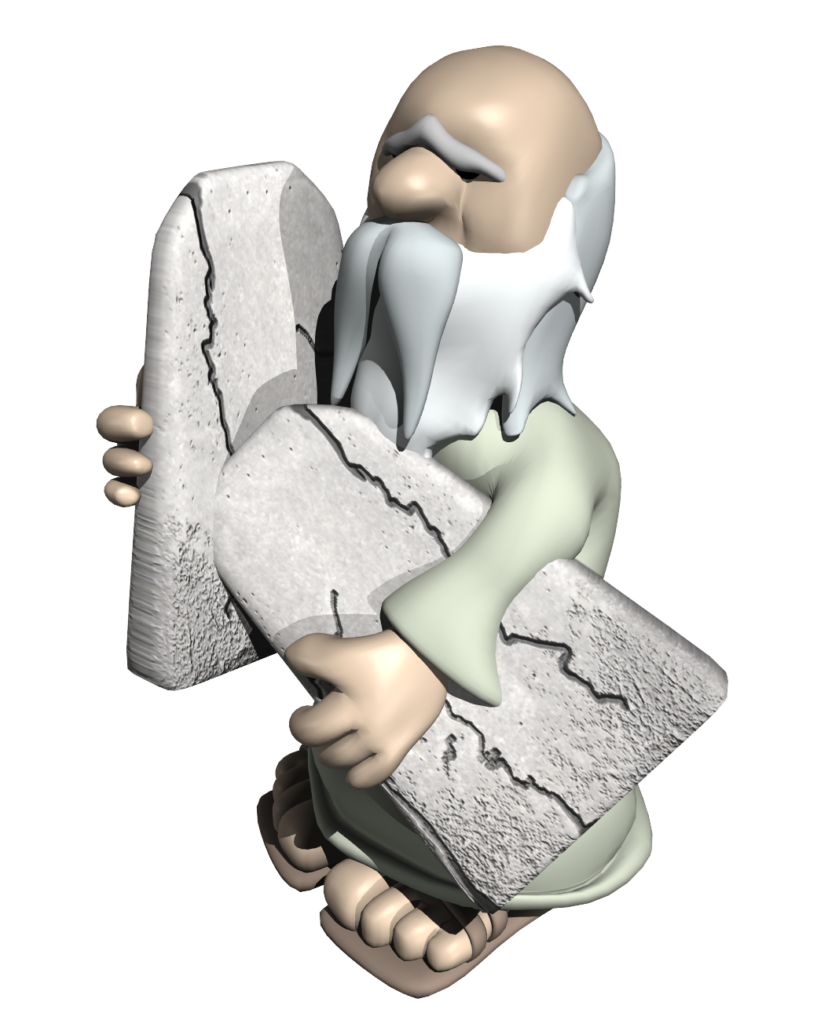
Deuteronomy 24:1, Write her a bill of divorcement. Divorce laws and a bill of divorcement (Heb. get)is the subject of this passage. This verse forms the basis of the divorce laws of the Torah and the actual get or bill of divorce, which was a written document that a husband gave to his wife because of some immoral activity on her part (The ArtScroll Stone Edition Chumash, p. 1058). The subject of divorce and remarriage is a large subject and is beyond the scope of this present work, yet it is interesting to note that Moses himself, the one who YHVH used to pen the Torah, was very likely divorced and remarried. (We have discussed this subject in Parashat Yitro.) YHVH himself divorced Israel and gave her a get because of her unfaithfulness to him, though he never remarried. (See the teaching below.)
Deuteronomy 24:1–4, For an explanation of this passage in light YHVH-Yeshua’s remarriage to adulterous Israel as sit relates to the gospel message, see notes at Romans 7:1–6.
The Real Purpose for Divorce Under Torah
Deuteronomy 24:1–4, Natan’s Notes on the Biblical Reasons for Divorce
- Jeremiah 3:14, After YHVH divorced Israel (v. 8), he was still married to her. What’s going on here? Even though YHVH divorced Israel, he still considers himself married to her because he had made a covenantal vow with Israel, and vows can’t be broken (except by death or under very stringent requirements). Period.
- Look at Hosea 1:2 cp. 3:1–3. Hosea’s actions toward Gomer, his adulterous wife, is an example of YHVH’s unfailing love for is Israel, who was his spiritual adulterous wife. Marriage is a covenant vow that when broken by adultery requires the death penalty for the offending party. Gomer committed adultery. Yet Hosea brought her back and redeemed her from adultery. He loved her unconditionally and laid his life down for her (as YHVH does for us, see Eph 5:28).
- Deuteronomy 24:1 can’t be used as a justification for divorcing under just any circumstances. Only if the wife has committed or is committing sexual immorality (in Hebrew ervah) can her husband put her away. A bill of divorcement, in Hebrew called a get, must first be issued for the purposes of restoring the immoral woman. One cannot put their wife away for any reason. Even Yeshua confirmed this in Matthew 5:32. Ideally, according to the Torah and to Yeshua, some sexual immorality (in Hebrew ervah)has to have been committed for a man legally to divorce his wife according to the Torah-law. I inserted the word ideally because there are seldom ideal situations in life, and humans rarely live up to YHVH’s ideal moral and spiritual standards. As such, Yeshua admits that the Torah as administered by Moses allowed for divorce to occur, sadly, because of the hardness of human hearts (Matt 19:8). What does “hardness of heart” mean? Scripture doesn’t say. The following is simply my speculation on what this means. For example, I would not expect one to be required to stay married if several severe conditions existed such as physical abuse, criminality, drug addictions, abandonment, total dereliction of responsibilities or extreme heathenism. Such sins make it all but impossible for a righteous person to remain in such a spousal relationship. A spouse who is practicing such has violated their contractual marriage vows and thus there legally and technically is no marriage. A believer shouldn’t be forced to remain in such a relationship. Having said this, it is the saint’s duty, as much as possible, to vet out a prospective mate before marrying them to ensure that they have never been involved nor are currently involved in such activities. One should only marry an Elohim-fearing, commandment-keeping, born again faithful believer in Yeshua the Messiah, who has a long fruit-bearing track record of such a lifestyle. Again, this is Natan Lawrence speaking, not Scripture, but it is my best understanding of scriptural principles as they relate to marriage and divorce.
- Marriage between two believers is a vow with YHVH. Marriage between two unbelievers is something else. It is simply an agreement or contract between two people. Maybe YHVH is part of it, maybe he is not. It all depends on the vows and the situation.





